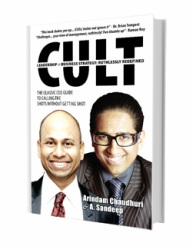In fact, there are four key stakeholders to this current imbroglio. The first is the group of insurance companies; the second are the large hospitals; the third are the state governments (as health is a state subject!); and the last – and the most significant – are the insured individuals, that is, the common man! Let’s analyse each of these stakeholders and evaluate them in the context of the current crisis.
Let us first start with the insurance companies. Considering that filing of inflated medical bills – by increasing the stay of patients, requesting unnecessary medical tests, multiple visits by consultants, differential pricing, expensive disposal items et al – has been an issue with the large and renowned hospitals since a long time, why wasn’t the same addressed by the insuring companies much before and that too within the actuarial, while drafting the health based premiums? Today, when bottom lines are put to test on account of the faulty modeling of premiums by insurance firms themselves, why should one be allowed to spoil the boat of the common man – especially when the common man initially signed up for health insurance on being promised advantages like cashless facilities?
Coming to the second stake holder – that’s the group of hospitals, who are accused of errant and inflated pricing! Now, if hospitals were/are charging that kind of price, it is just because of the existing asymmetries in the health market. Looking at health completely dispassionately, these hospitals would not even have existed had the state government (the third stakeholder) been responsible enough to create adequate health infrastructure. In the absence of the same; and in the absence of quality health facilities, all leading hospitals enjoy that position of being able to charge premium pricing. As far as quota for treating the poor free of cost is concerned, we all know how unsuccessful both the government and these hospitals are in their own respective ways.
Read More....
For More IIPM Info, Visit below mentioned IIPM articles.
IIPM B-School Detail
IIPM makes business education truly global
IIPM’s Management Consulting Arm - Planman Consulting
Arindam Chaudhuri (IIPM Dean) – ‘Every human being is a diamond’
Arindam Chaudhuri – Everything is not in our hands
Planman Technologies – IT Solutions at your finger tips
Planman Consulting
Arindam Chaudhuri's Portfolio - he is at his candid best by Society Magazine
IIPM ranked No 1 B-School in India
domain-b.com : IIPM ranked ahead of IIMs
IIPM: Management Education India
Prof. Rajita Chaudhuri's Website
------------------------------------------------------------------------------------------------------------------

 RSS Feed
RSS Feed